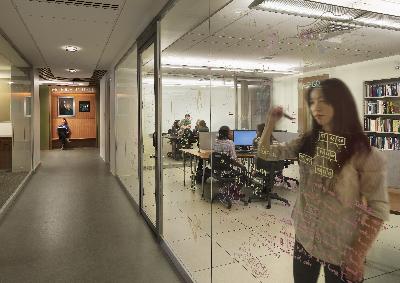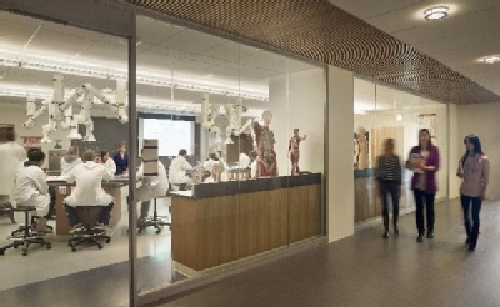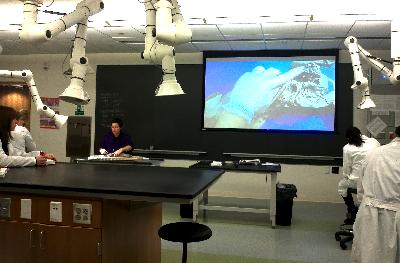Impact on Science Education
One of our primary goals as science educators is to provide a rich and stimulating intellectual environment that will all both our students and faculty to engage in the process of scientific discovery. We acknowledge that it is important for everyone to learn not only from direct research endeavors, but also from interactions and collaboration with colleagues. Thus, the building is designed to provide spaces that promote research activity as well as effective intellectual collisions between individuals.

This facility enables us to achieve a number of important educational goals, as outlined in our original vision of the building:
"Imagine a building filled with flexible, state-of-the-art classrooms that permit discussion, group learning, and access to technology for students as well as professors."
We designed combination lab/lecture rooms to permit seamless transitions between faculty-directed and hands-on activities. Our comfortable, quiet teaching labs encourage outreach for local K-12 educators and their students, providing a valuable community resource.
"Imagine a science complex housing the teaching and research space for Biology, Chemistry, Computing Sciences, Mathematics, Neuroscience and Physics."
State-of-the-art classrooms, teaching laboratories, research spaces, faculty offices, and informal gathering spaces reflect the interactive nature of science and encourage active participation.

"Imagine a science center that serves as a showcase for modern science pedagogy."
Part and parcel of our classroom and laboratory design is to make science highly visible to individuals who share the same facility, as well as make it visible to those who are passers-by. This visibility actively engages others, invites others to participate in the discovery process, and shares the excitement of scientific inquiry.
"Imagine a science center that reflects the strength of the STEM tradition at the University of Scranton."
The unification of the math and science departments into a common facility sends a strong message that underscores our educational philosophy: that the study of nature requires thinking, intellectual discourse, and investigative approached that cross traditional disciplines and explore new and different ways of looking at the world. This goes hand-in-hand with our mission of education as a transformative experience.
